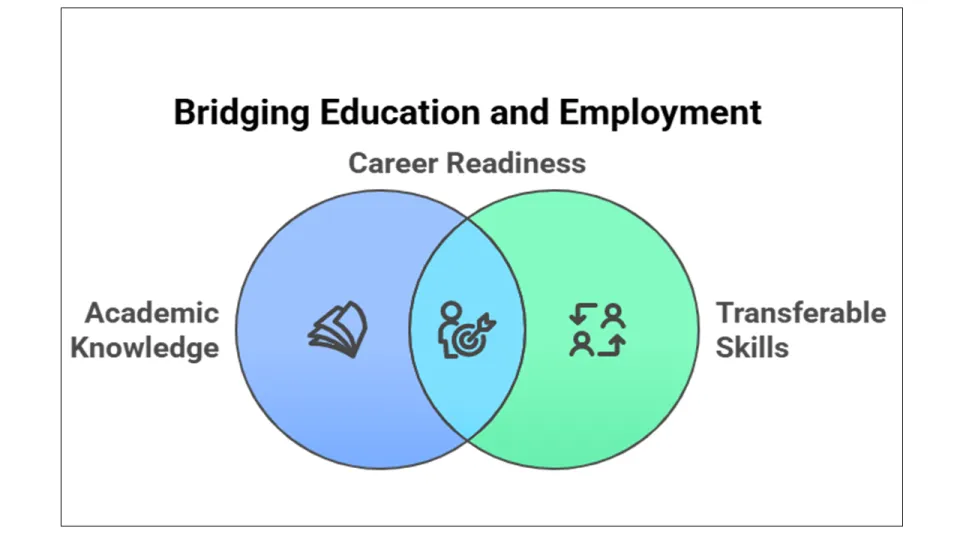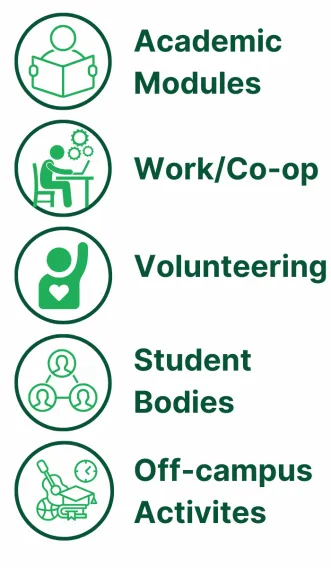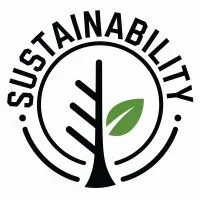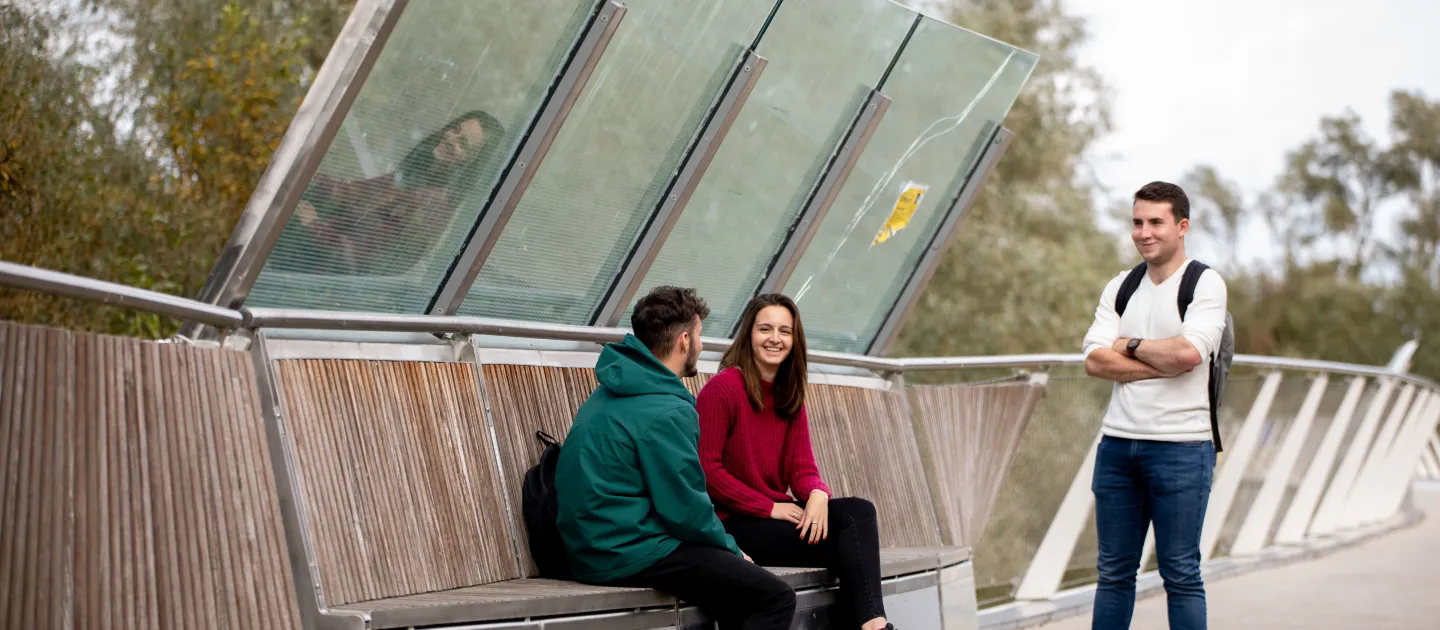Transferable Skills are:
The type of skills, abilities and attributes that are needed to enable people to address the increasingly complex and interrelated problems that confront societies and workplaces in the 21st century.
They are the skills that are demanded in multiple different contexts. These skills enable people to move more easily between different employments and/or civil society engagements.
You may see Transferable Skills being referred to as Transversal, 21st Century, Core or Soft Skills.
Why are we focusing on Transferable Skills?

Traditionally, universities have focused mainly on subject specific knowledge and understanding. Applying skills to the workplace was left to the individual graduate. We are now introducing a stronger focus on skills that can produce more balanced graduates who are work and career ready.
There are many reasons to focus more on Transferable Skills. These include:
- To prepare our students for employment and society
- To supplement discipline specific education
- To recognise the increasing emphasis on transferable skills in higher education and workplaces
Where do students acquire Transferable Skills?
At the University of Limerick (UL), we acknowledge that students develop their skills through various means. We focus on five key, interconnected domains:
- Academic studies
- Co-operative Education
- Volunteering
- Participation in student organisations
- Other extracurricular activities
TSU will provide a way for students to look across these domains and:
- see many ways to develop skills
- recognise the interconnections between these domains
- appreciate the importance of drawing examples and evidence from these domains to showcase your skills

Understanding Transferable Skills
Our work on Transferable Skills is based on international skills frameworks, for example the International Labour Organisation and ESCO (European Skills, Competences, Qualifications and Occupations) Click on the dropdown arrow on the right to see more information on the ESCO framework which was setup to describe skills and occupations relevant for the EU labour market, education and training.
The ESCO framework skills and competencies include:
| Thinking | Social and communication | Self-management | Core skills | Life skills |
Processing information Ideas and concepts Planning and organising Dealing with problems Thinking creatively and innovatively | Communicating Supporting others Collaborating in teams and network Leading others Following ethical code of conduct | Working efficiently Taking a proactive approach Maintaining a positive attitude Demonstrating willingness to learn | Mastering languages Working with numbers and measures Working with digital devices and applications Working with digital devices and applications | Entrepreneurial and financial health related cultural general knowledge environmental skills and competences |
What skills are we focusing on?
In AHSS we are currently focusing on seven skills, though others will be added at a later stage. While these are often considered as individual skills, in reality, they all interact with each other. For example, effective problem solving fundamentally requires critical thinking and creativity and will often be based on good communication and collaboration. Increasing too, it will involve the use of different digital tools.
More information on each skills can be found by clicking on the dropdown arrows on the right below:

Critical thinking involves deeply understanding issues and using evidence to find effective, lasting, and fair solutions to problems.
It emphasises the need for reasoning and logic before making judgments and finding solutions. Additionally, it requires a personal commitment to look beyond the surface of any topic or issue.

Collaboration, teamwork, and cooperation are needed in almost every part of our lives—at work, in education, in our communities, and in our families.
Effective collaboration means committing to good communication, taking personal responsibility, fostering a team spirit, sharing ideas, and achieving results.

Problem solving focuses on developing effective and sustainable solutions across various settings. It relies on transparent and evidence-based problem definition and understanding, informed by empathy and active engagement with those affected.
Effective solutions emerge from creative idea generation, idea refinement, and sincere consideration of implications and of objections to preferred solutions. Successful problem solving also requires attention to feasibility, desirability and capacity to deliver, often involving teamwork.

Creativity involves the ability to develop novel ideas, concepts, products, services or problem solutions that are of value to the individual and/or a larger social group.
Creativity emerges where there is flexibility, authenticity, imagination, many sided and independent thinking, and openness to being wrong and being shown to be wrong. We can be individually creative, or in collaboration with others.
Creativity requires us to embrace criticism, act with courage and cultivate an ability to thrive in less structured situations, where ambiguity and uncertainty are ever present companions.

Communication has many different components. It is about how we effectively express ourselves, orally, in writing or in our body language. It is about how we present ourselves and tell stories, our own as well as the stories of others.
Communication is also about how we listen and engage with the words, views and opinions of others.

Digital literacy is about how we can use the digital domain to access and manage data and information and how we can use that data in problem solving, collaboration etc. It is also about how we learn to recognise abuses of the digital world, through misinformation or manipulation of data.
Digital skills more specifically speak to the ability to use a variety of digital tools and technologies. The skills that allow us to become digitally literate include how to use digital hardware, devices such as computers or smart phones or various software tools.
Finally, digital literacy has to be about awareness and understanding of the increasing presence and role of Artificial Intelligence (AI) in our daily lives and associated ethical questions.

Sustainability literacy is an essential skill for all and has close connections with the other transferable skills and competencies described above.
At its most basic it
"means prioritising the needs of all life forms and of the planet by ensuring that human activity does not exceed planetary boundaries "(EU GreenComp)
It is served in no small way by other skills such as critical thinking, problem solving and collaboration.
Sustainability competencies and skills include a capacity to reflect on values and to support equity. It is also about learning to embrace and recognise the complexity and the importance of systems thinking and the interaction between different systems, including environmental, economic and social systems.
